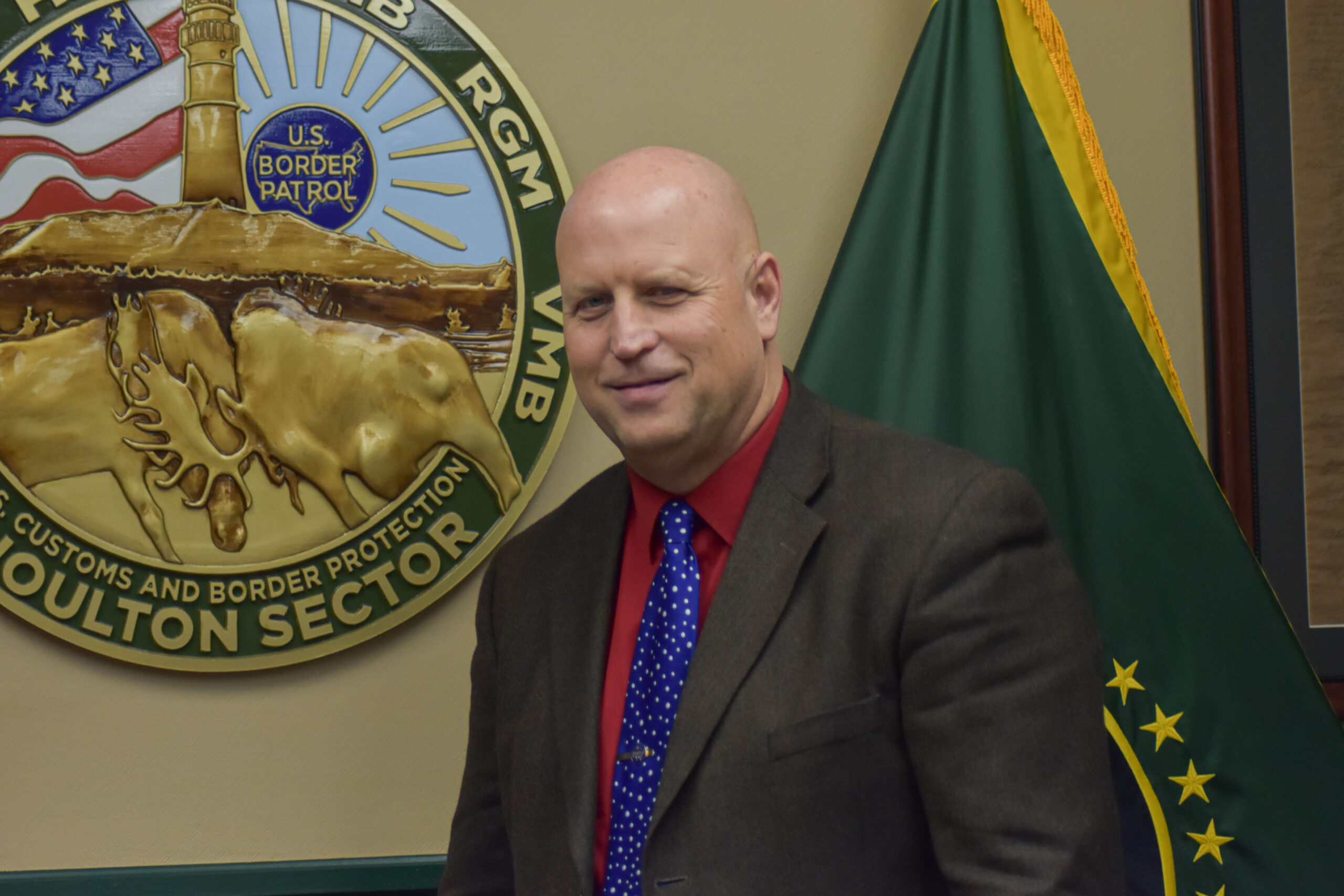
HODGDON, Maine — Organized human smuggling is increasing along Maine’s border with Canada as smugglers search for vulnerabilities in the often forested and remote 611-mile-long boundary, according to U.S. Customs and Border Protection.
In a six-week period from October to mid-November, U.S. Customs and Border Protection’s Houlton sector had 53 encounters that resulted in 27 people who will be federally prosecuted, a 178 percent increase over last year for the same time period, according to customs and border protection data.
The rise comes amid a continuing flood of people crossing the southern U.S. border with Mexico, where border protection reported nearly 2.5 million encounters in fiscal year 2023 ending in October. Human smuggling is a regular occurrence in that part of the country.
While Houlton sector border patrol agents have had recent encounters with nationals from 15 countries, the majority come from Mexico and Romania, said U.S. Customs and Border Protection official Dennis Harmon, who has been a border patrol agent for 32 years and with the Houlton sector since 2001. He took over as acting chief patrol agent this summer
“In my 20-something years here in the Houlton sector I have never seen a spike like what we’ve seen over the last few years, especially this year,” Harmon said.

There are a couple reasons for the increase, but human smuggling is at its core.
Not to be confused with human trafficking, human smuggling involves providing a service like transportation or fake documents to a person who wants to enter the country illegally, according to U.S. Customs and Border Protection.
Human trafficking exploits people by forcing them into slave labor or the sex trade, the agency said.
.
According to Harmon, human smuggling operations are all different, but their goal is the same, to make a profit off people trying to enter the U.S. illegally.
The United Nations Office on Drugs and Crime estimates that the smuggling of people generates around $6.75 billion a year.
In some cases, foreign nationals pay thousands of dollars to smugglers to help them get across the border. And smuggling operations often have organizers who make the arrangements and hire – paying about $500 to $1,000 per smuggled person – other illegals or U.S. citizens to get the foreign nationals across the border or to a final destination, according to court documents.
Last week, border patrol agents apprehended 20 Romanian nationals on Lincoln Street in Hodgdon who illegally crossed the U.S.- Canada border in four cars. They were all arrested and processed in Fort Fairfield, Harmon said.
When a foreign national is apprehended at the border, agents first Identify nationality and the person’s legal status to be in the United States. In the case of the Romanians, everyone was taken to a processing area where they were fingerprinted for identification, criminal history, immigration history.
“We don’t always get the truth,” Harmon said. “They may say they are Jane Doe but they are really Jane Smith.”
Agents work in close cooperation with the Maine U.S. attorney to prosecute illegal entry or smuggling. Sometimes the people detained also have outstanding warrants with other agencies, state, local or federal, he said.
“We always try to deliver a consequence if we can,” Harmon said. “And sometimes we process them for a court hearing with an immigration judge and then release them on their recognisance.”
Under federal law, if they don’t show up for the immigration hearing, the judge orders the person deportable.
Anyone bringing an undocumented person into the U.S. at a place other than a designated port of entry faces up to 10 years in prison. Helping an undocumented person improperly enter the country is punishable by up to six months in prison, according to the Department of Justice.
Harmon said illegal attempts to cross the international border are increasing throughout the Houlton sector, which has stations in Houlton, Fort Fairfield, Van Buren, Calais, Jackman, Rangeley and a Fort Fairfield substation.
“It’s not just Hodgdon — it’s throughout the state of Maine along our border with Canada. Hodgdon just happened to be the last place we had the illegal entries,” he said.
In addition to a rise in human smuggling, Canada’s electronic travel authorizations have made it much easier for people to enter Canada.
“Basically they allow people to go into their country without a visa. Unfortunately some of the people are taking advantage of that to facilitate an illegal entry into the U.S.,” Harmon said. “It’s actually cheaper to fly out of Mexico City into Toronto than it would be to pay a smuggling organization.”
The Houlton sector is also popular because of its close proximity to I-95 and the Trans-Canada Highway.
The increase in the number of illegal border crossings in northern Maine is not leading to more danger in the community, Harmon said. The majority of people coming through the northern border are people looking for economic benefit or to reunite with family, he said.
The Romanians arrested earlier this month were family members, and they stayed together, Harmon said.
Border protection has a strict policy to not separate families. The Romanians were not separated, he said.
“Family separation is a last resort for us, and there would have to be egregious crimes for that and several layers of review before that would happen,” he said.
During initial processing, two of the Romanians were identified as having possible links to organized crime. But that does not always mean they have actual connections, Harmon said.
Many who cross the northern border put their lives in peril especially in winter. Harmon said they have had to rescue people in trouble who were not lied to by the smuggler and not prepared for the conditions.
“They say it’s just a short walk. But what they don’t say is that a pair of tennis shoes and a pair of thin cotton pants is not what you want to be wearing while crossing a mile of thigh-high deep snow,” he said. “We have had calls to 911. They will call in distress.”
One couple tried illegally crossing the border last winter and got lost in the North Maine woods, Harmon said. Border patrol agents had to first rescue them, then arrest them.
A big part of what the agents do is patrol as a deterrent, using various technologies to enhance enforcement capabilities. Cameras are just one of them.
The border patrol has a strong working relationship with Royal Canadian Mounted Police and the Canadian Border Services Agency and often exchange intelligence, according to Harmon.
“We are here to strengthen the borders of both nations and make sure people are not exploiting that border,” he said. “It is the largest unguarded border in the world and we don’t have infrastructure. There’s no fence and we want to be able to protect that border for both nations and that’s why we have a strong committed partnership.”







